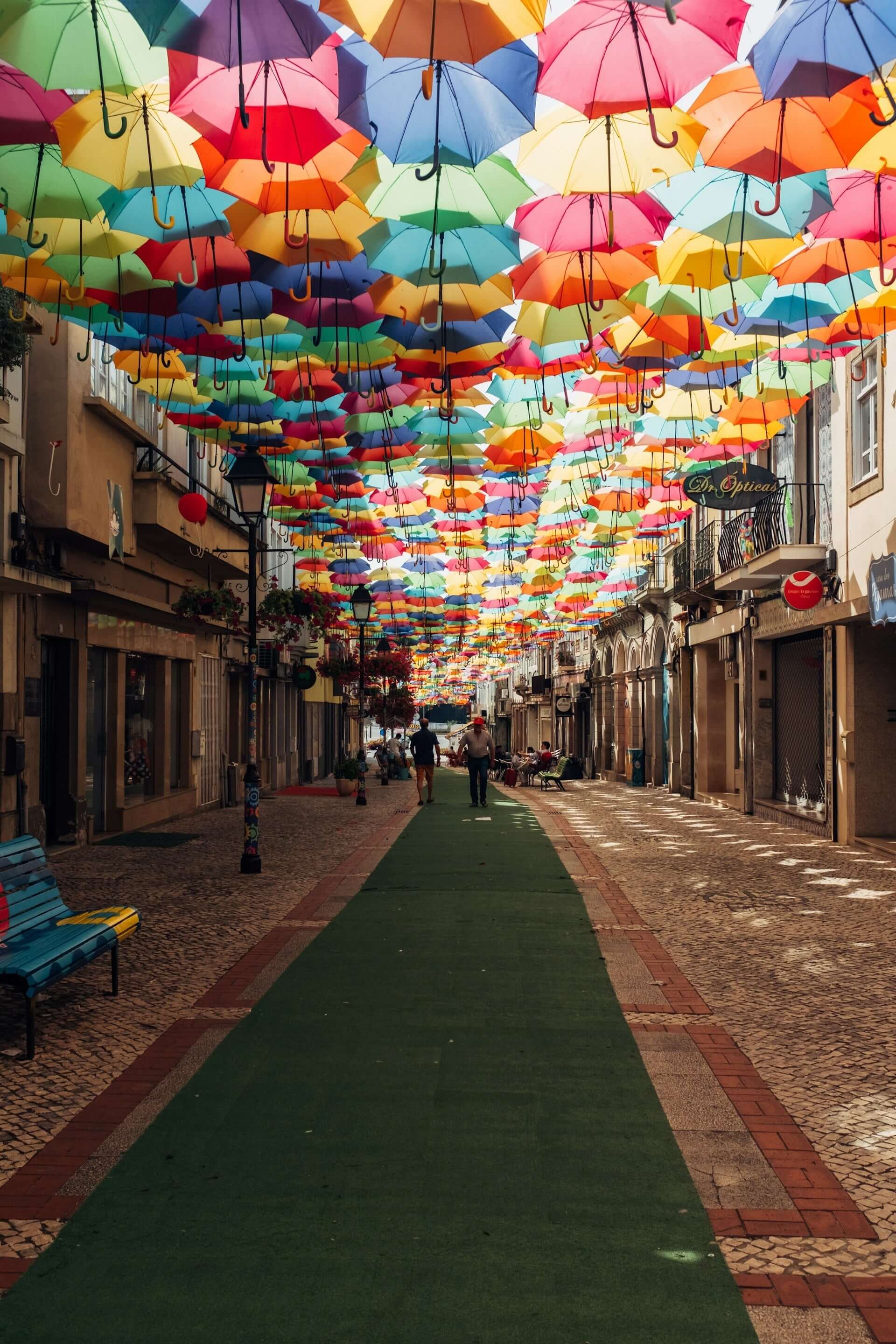
A long history of craft
You don’t have to look far in Portugal to see a culture that values craft. From the intricate azulejo tilework on buildings, to the decorative cobblestone patterns on streets, doing things the easy way has never been the priority. And when it comes to olive oil, the Portuguese have been slower to throw out old practices and varietals in favor of mass production and industrialization.
Craft is everywhere you look in Portugal
-

Azulejo Tiles
These hand-painted ceramic tiles, often depicting elaborate scenes and patterns, adorn buildings and streets throughout the country. Unlike modern building materials, azulejos require meticulous craftsmanship and patience, and embody a culture that values artistry over convenience. They take the mundanity of a building wall and make it a work of art.
-

Cobblestone Street Art
While Portugal could have followed the lead of the rest of the modern world and migrated to paved roads, the cheaper and safer option, once again it has picked the less efficient route in the name of tradition and craftsmanship. The intricate, hand-cut and hand-laid cobblestone patterns can be found in every city in Portugal and are a testament to doing things the beautiful way
-

Cork Craftsmanship
Sustainably harvested once every 10 years from the bark of the tree, there is perhaps nothing that symbolizes Portuguese craft more than cork. Meticulously harvested by hand, this incredibly pliable material is then transformed into everything from wine stoppers and purses, to footwear and furniture. Many families involved in the cork industry have been practicing their craft for centuries. Plastic stoppers or screw tops work just as well and are much cheaper to produce, but nothing compares to the beauty of cork.
-

Traditional Cuisine
From the hearty caldo verde soup to the salty clams with garlic and wine to the luscious pork cheeks and potatoes, almost every Portuguese restaurant will have the exact same menu. While it would be easier to differentitate yourself with a novel menu, that's not the goal. Perfecting a recipe that has been passed down for generations is what keeps your loyal customers coming back.
-

Fado Music
Soulful and melancholic, Fado music is rooted in the streets of Porto and Lisbon and captures the loss, longing and complexities of life of all of Portugal. Recognized by UNESCO as an Intangible Cultural Heritage of Humanity, Fado is more than just music; it is a profound expression of the Portuguese soul, and it hasn't change much in over a hundred years, because good things are worth preserving.

Wildly Virgin Olive Oil
Portuguese olive oil is still wildly virgin. In a world increasingly dominated by mass production and run by large conglomerates, Portuguese olive oil is still mostly small farms producing olive oil in small batches. From hand-picking olives early in the season, to getting the olives to mill quickly, the quality of Portuguese olive oil comes through. We are thrilled to be able to bring you this special olive oil that is very rarely exported.





